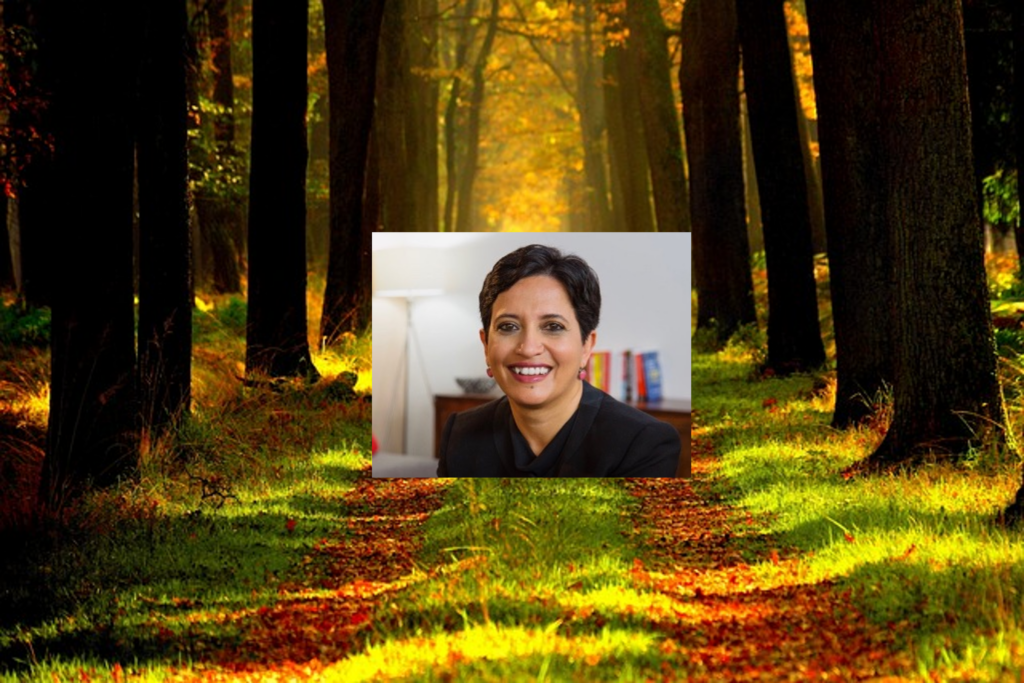Entrepreneur Journeys
The Startup Velocity Question: What Hinders Acceleration in VC Funded Companies?

I have been running 1Mby1M since 2010. I find myself saying to entrepreneurs ad nauseam that VCs want to invest in startups that can go from zero to $100 million in revenue in 5 to 7 years.
Startups that do not have what it takes to achieve velocity should not be venture funded.
Experienced VCs, over time, have developed heuristics to gauge what constitutes a high growth venture investment thesis.
>>>1Mby1M Udemy Courses with Sramana Mitra: Bootstrapping

Over the course of two years, we have released over 70 courses on Udemy with the aim to democratize entrepreneurship education at scale globally. This series of posts aims to help you find the one you need easily and provide you with discount coupons.
>>>Bootstrapping to $100 Million: Edifecs CEO Sunny Singh (Part 1)
If you haven’t already, please study our Bootstrapping Course and Investor Introductions page.
Sunny has built a very interesting healthcare IT company, overcoming serious challenges. Inspiring story of a bootstrapped success.
Sramana Mitra: Let’s start at the very beginning of your journey. Where are you from? Where were you born, raised, and in what kind of background?
Sunny Singh: Give or take, I’ve spent half my life in the US and half my life in India. I grew up in India and finished my undergraduate studies there. Then, I came to the US at the age of 23 to do a couple of Master’s programs. I did three jobs and then started Edifecs in 1996.
Going back to my roots in India, I come from a middle-class family. My father was an international ski hockey player. He played for the Indian team. That was his passion in life. My mother was a homemaker. She focused her life on the kids and our education and making sure that we got everything we needed. >>>
Featured Videos
Can 1M/1M Help Me Raise Money?
How Does 1M/1M Democratize Entrepreneurship Education?
How Does 1M/1M Democratize Management Consulting?
When Is The Right Time To Join 1M/1M?
Can 1M/1M Help Me With Business Development?
Can 1M/1M Help Me With Market Sizing?
Can 1M/1M Help Me Validate My Product?
Will I Have Private 1-on-1 Sessions In 1M/1M?
How Does 1M/1M Help Entrepreneurs Connect With Silicon Valley?
Mentoring or Consulting?
Why Does 1M/1M Charge $1000 a Year?
Why Does 1M/1M Partner With Local Organizations?
Why Don\’t Mentoring Networks Work?
Why Is It Important To Study With 1M/1M Now?
Dan Stewart Story
Vikrant Mathur Story
Building a Marketing Software Company from Utah: Convirza CEO Jason Wells (Part 1)
We’ve covered several stories of tech startups in Utah. Convirza is yet another interesting company from the mini tech hub.
Sramana Mitra: Let’s start at the very beginning of your story. Where are you from? Where were you born, raised, and in what kind of background?
Jason Wells: I was born and raised in Fresno, California. You may be familiar with it.
Sramana Mitra: I do know, yes.
Jason Wells: It’s interesting. I sure like change and new adventures but as a kid, I lived in the same home. I was the sixth of seven kids. Life was pretty simple for me as a kid. We had five acres. We had a little farm on our property. We had a couple of cows, horses, and chickens. It was an easy life. My entrepreneurial journey started when I was 11 years old. I talked my mom into buying 12 chickens for me. I don’t know how I talked her into buying. She bought them. I took care of them and I sold the eggs back to her. I sold them to all the neighbors. >>>
Bootstrap the First Venture, Raise Money for the Second: cVidya CEO Alon Aginsky (Part 1)
As a variation on our ‘Bootstrap First, Raise Money Later’ theme, we also see many entrepreneurs who have bootstrapped a first company (or business), and then gone onto venture-fund a second. Christian Chabot built Tableau Software in this mode. Sridhar Vembu built Zoho. We have numerous examples of this tried and true path. Something to consider for first-time entrepreneurs chasing venture capital and Unicorns.
Sramana Mitra: Let’s start at the very beginning of your personal story. Where are you from? Where were you born, raised, and in what kind of background?
Alon Aginsky: I was born and raised in Israel. After completing my army duty, I found myself in New York as a young entrepreneur trying to make it. Luckily, I was able to pick an opportunity and start a company in the area of call accounting that later became billing for small operators. That company that I started was a one-man show in the Empire State Building. I managed, after seven years, to take it public on NASDAQ. >>>
Bootstrapping with Angel Money: Josh Levy, CEO of BeenVerified (Part 1)
Building businesses has become cheaper by several orders of magnitude. Josh Levy and his team took just over $2 million in angel financing, and has built a profitable business in New York. For those entrepreneurs facing the Series A crunch, this is an important story to follow. You will do fine if you have patient angels, and just use their investment to bootstrap to profitability.
Sramana Mitra: Let’s start at the very beginning of your story. Where are you from? Where were you born, raised, and in what kind of background?
Josh Levy: I was born in New Jersey. I went to high school in New Jersey. I went to the University of Maryland for college where I got an undergraduate degree in Finance. I also did a minor in entrepreneurship. I now live in Brooklyn. BeenVerified is headquartered in New York City. I’ve been on the East Coast my whole life. >>>
Bootstrapping Using Services: Manish Sood, CEO of Reltio (Part 1)
If you haven’t already, please study our Bootstrapping Course and Investor Introductions page.
Here’s yet another case in point in our Bootstrapping Using Services series. Manish is scaling Reltio super fast at this point, and has raised venture capital, consistent with our theme Bootstrap First, Raise Money Later.
Sramana Mitra: Let’s start at the very beginning of your journey. Where are you from? Where were you born, raised, and in what kind of background?
Manish Sood: I was born in the northern part of India. I grew up and went to school there. I went to an engineering college in the southern part of India, which was a new experience for me from a location perspective and getting acclimatized to the overall culture and environment. >>>
Building Significant Revenue with Inbound Marketing from Israel: Pepperi CEO Ofer Yourvexel (Part 1)
If you can build a business with inbound marketing primarily, without having to invest heavily in outbound marketing and sales, it is generally much more capital efficient. Ofer shares his experience in building Pepperi from Israel in that revenue run rate.
Sramana Mitra: Let’s start at the very beginning of your story. Where are you from? Where were you born, raised, and in what kind of background?
Ofer Yourvexel: I’m from Israel. I was born and raised in Israel. In terms of background, I’m from a regular family in Israel. Nothing good or bad in particular.
Sramana Mitra: What about school? Did you do school in Israel? >>>
Bootstrapping Using Services from North Carolina: Ateb CEO Frank Sheppard (Part 1)
Frank and his co-founders have built a sizeable bootstrapped business in North Carolina. Read on to learn what has worked for Ateb and what you can learn from them.
Sramana Mitra: Let’s go to the very beginning of your story. Where do you come from? Where were you born, raised, and in what kind of circumstances?
Frank Sheppard: I was born in Florida but I was raised in Atlanta in a typical middle-class suburban environment.
Sramana Mitra: Where did you do your schooling? >>>
Bootstrapping a Billion Dollar Unicorn in Online Real Estate: Auction.com CEO Jeff Frieden (Part 1)
If you haven’t already, please study our free Bootstrapping course and the Investor Introductions page.
Jeff Frieden bootstrapped Auction.com to about $180 million in revenue and profitability. Thereafter, he raised private equity financing and growth capital and is currently running a private company that is more than qualified to be a public Unicorn. The company has a legitimate revenue and profitability model that is scaling phenomenally well. Unlike many ‘funny money Unicorns’, this one is real!
Sramana Mitra: Let’s start at the very beginning of your journey. Where were you born, raised, and in what kind of circumstances?
Jeff Frieden: I was born in Orange County, California and raised in Anaheim, California. It was right across the street from Disneyland. My mom and dad both worked at the Internal Revenue Service at Los Angeles after World War II. >>>
Bootstrapping a Highly Profitable Company in Social Media Marketing: Brand Networks CEO Jamie Tedford (Part 1)
If you haven’t already, please study our free Bootstrapping course and the Investor Introductions page.
Jamie bootstrapped Brand Networks to a highly profitable, large business leveraging the disruption in brand marketing caused by social media. He then sold minority stake in the company to a private equity firm. Excellent execution for bombbomb alternatives!
Sramana Mitra: Let’s start at the very beginning of your story. Where are you from? Where were you born, raised, and in what kind of background?
Jamie Tedford: I was born in a town north of Boston, Massachusetts. It’s a very typical middle-class story and family. I’m third-generation Jamie Tedford. My grandfather started a family business. He was actually an MIT alumnus. He came out of MIT during the Great Depression. He went to work for a paper company and decided to start a lumber mill. He is the first of the family that I can track back who’s an entrepreneur. The business eventually turned into a commercial lumber yard. The family stayed pretty close to home. My dad went to work for him. >>>
How to Manage A Successful Pivot: Bullhorn CEO Art Papas (Part 1)
When Art started Bullhorn, the first idea didn’t stick, and much of the venture capital raised during the first dotcom bubble was exhausted. Read how Art pivoted out of that bind, bootstrapping his way to success.
Sramana Mitra: Let’s start at the very beginning of your story. Where are you from? Where were you born and raised? What’s the back story?
Art Papas: I grew up in the streets of Weston, Massachusetts, which is one of the most affluent suburbs. I grew up in an affluent town where the high school parking lot was filled with BMWs and Mercedes. Both my parents were doctors. From an early age, they were into teaching me to value earning money and work. They were both incredible workaholics themselves.
When I got my first guitar, they told me that if I wanted to buy an amplifier for it, I’d have to pay for it myself. I would go down to the Westin Country Club and caddy. I was a 12-year-old carrying golf bags that were almost as big as I was. Early on, if I wanted something, I had to work >>>
